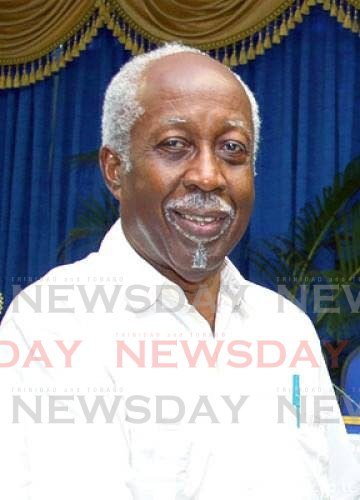Tobago’s claim on the Treasury

THE EDITOR: Self-government for Tobago as proposed in the bill before Parliament is now a subject for national discussion. While focus is on the constitutional, legal and administrative issues involved in the proposed governance arrangement, not much attention is being paid by the general tax-paying public on the funding requirements for this embrace of greater autonomy by the sister island.
Tobago’s fixed claim on the national finances was first established in the Tobago House of Assembly Act of 1996 when a minimum allocation of 4.03 per cent of the national budget was to be granted to the THA to be spent at the pleasure of that body without effective oversight or accountability either in Tobago or by the Parliament of TT.
This percentage was guaranteed to Tobago whether there was wastage, irregularities, profligacy or corruption in the expenditure undertaken or whether the state of the national finances warranted the sum provided. This issue was even the subject of critical commentary by eminent Tobagonians such as Reginald Dumas and Winford James.
This questionable arrangement was agreed by the then leaders of the UNC and DAC, presumably as recompense for the votes of the two Tobago MPs in enabling the UNC to form the government in 1995. It was, however, a precedent with far-reaching financial consequences.
In the 2021 budget the percentage allocation was 4.3 which did not include provisions totally close to $1 billion for Tobago by various central government ministries and statutory bodies. Dr Vanus James of Tobago has even advocated that “32 per cent of the country’s capital budget should be spent on developing Tobago” (Business Guardian 28/1/21).
Recently, a joint select committee of Parliament has recommended that the fixed minimum amount of 4.03 per cent of the national budget should be increased to 6.8 per cent. Tobago Youth Council president Janae Campbell believes that 6.8 per cent is insufficient (Newsday 2/5/21). There seems to be no end to the appetite of Tobagonians for escalating demands on the Treasury.
The favoured position of Tobago is confirmed in current PNM policy and practice. Curtis Williams, writing in the Business Guardian of 28/1/21, states: “…the national party led by a Tobago-born Prime Minister…has focused much of his time and interest on delivering things to the people of Tobago…” Among the projects listed are a new hospital, a new fire station, a new police station, a major tourism project, two ferries for inter-island transport, a new airport terminal building and extended runway, etc.
The inescapable question is whether the above financial demands are justified in light of the lack of funding for minimally basic goods and facilities in Trinidad.
The Ministry of Works and Transport claims it has no money even to fix potholes in the majority of roads in the country, especially in the rural areas. There is no money to pay contractors to maintain traffic lights.
The Ministry of Health is hard-pressed to maintain critical machines in the health system or to purchase basic drugs for patients.
Local government authorities protest that there is no money for purchasing gasoline for vehicles or basic supplies for their public health units.
In light of the inequitable distribution of public funds when it comes to meeting the minimal developmental needs of Trinidadians, Curtis Williams (Business Guardian 28/1/21) asked Dr Vanus James “why should the people of Mayaro or La Brea or Point Fortin invest their tax dollars on Tobago when their area is underdeveloped.”
The response was illuminating: “…That’s an issue for the people in those areas who have failed to mobilise and fight for things like Tobagonians have done or are doing.”
However, when people in Trinidad, especially in rural communities, mobilise to request even minimal assistance in emergency situations, they are summarily dismissed by the leadership of the PNM Government.
I recall when the residents of Woodland, Pluck Road, San Francique and other districts in the Oropouche Basin who were severely impacted by the disastrous and unprecedented flooding in 2019 protested the virtual absence of the Government’s response to their plight, when compared to the swift and comprehensive response to flooding in Oropune two years earlier, Prime Minister Dr Rowley immediately declared that the protest and allegations of discrimination were motivated by race.
Thus for Trinidadians if you do not protest your condition you are condemned or, if you do, you are equally vilified.
TREVOR SUDAMA
San Fernando


Comments
"Tobago’s claim on the Treasury"